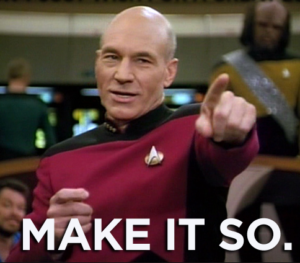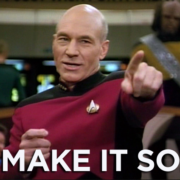Appeals 101: What is the Mandate?
 After an appellate Court decides a case, it is still not quite over: the appeal is only formally concluded once the mandate has issued. Florida Rule of Appellate Procedure 9.340 requires that the clerk issue the mandate as a ministerial act “after expiration of 15 days from the date of an order or decision.” The mandate is not issued until after the order is final, and the court won’t enter a mandate while a timely motion for rehearing is pending. Fla. R. App. P. 9.340(b). But what is a mandate, and what should parties do when the mandate has issued?
After an appellate Court decides a case, it is still not quite over: the appeal is only formally concluded once the mandate has issued. Florida Rule of Appellate Procedure 9.340 requires that the clerk issue the mandate as a ministerial act “after expiration of 15 days from the date of an order or decision.” The mandate is not issued until after the order is final, and the court won’t enter a mandate while a timely motion for rehearing is pending. Fla. R. App. P. 9.340(b). But what is a mandate, and what should parties do when the mandate has issued?
The Mandate Defined
Florida’s Second District succinctly defined the mandate as “the official mode of communicating the judgment of the appellate court to the lower court, directing the action to be taken or the disposition to be made of the cause by the trial court.”
Tierney v. Tierney, 290 So. 2d 136, 137 (Fla. 2d DCA 1974). It’s a simple one-page order that tells the trial court, in Star Trek speak, to “Make it so.” It makes clear that the appellate court has completed its work on the case and now it is up to the trial court to put the appellate court’s ruling into action. And that is all the trial court may do, as the Second District more recently explained: “upon the issuance of our mandate, the trial court is without authority to take any action other than to compose an order carrying out the terms of the mandate. Florida Digestive Health Specialists, LLP v. Colina, 202 So. 3d 94, 96 (Fla. 2d DCA 2016).
What Action Needs to be Taken? It Depends.
Whether the parties need to take an action once the mandate issues depends upon what the appellate court has ruled. If the appellate court has merely affirmed everything the trial court did — especially if it is a PCA –then there generally is not much more to do to effectuate the appellate court’s ruling on the merits. The judgment is truly final.
But if the Court orders “REVERSED AND REMANDED” then there is usually something the trial court needs to do to effectuate the mandate. It might be just the simple entry of a new judgment reflecting the ruling. It might be a new trial. The parties can’t expect the trial court to just act, though — the parties should seek an appropriate motion or other trial court action to effectuate the mandate. In rare instances, a party may even need to file a motion to enforce the mandate in the appellate court. See, e.g., Whited v. Florida Com’n on Offender Review, 153 So. 3d 324, 329 (Fla. 1st DCA 2014) (granting appellate motion to enforce the mandate and striking trial court’s order that did not effectuate the mandate); Florida Digestive Health Specialists, LLP v. Colina, 202 So. 3d 94, 96 (Fla. 2d DCA 2016) (same).
What Happens Post Judgement Even if Judgment is Affirmed?
The finality of the mandate also give the parties the green light to finalize any fee issues and collect on the judgment. If the appellate court ordered an express or conditional award of attorney’s fees, it will also often order the trial court to determine the amount, and sometimes entitlement, to such fees. If there was a stay pending review, then the parties may need to take steps to end that stay. And the party who attained judgment has the all-clear to enforce that judgment without facing the possibility of having to return the money collected if the judgment is reversed. These collection actions may include proceedings in the trial court to locate assets for payment of a money judgment. In a foreclosure case, if the Bank achieved a foreclosure and that was upheld by the appellate court, the Bank will now take steps to obtain full possession of the property, which may include scheduling a sale if one has not already occurred, or obtaining or enforcing a writ of possession.
Can I keep the judgment from being final by recalling the mandate?
Florida Rule of Appellate Procedure 9.340(a) allows that “The court may direct the clerk to recall the mandate, but not more than 120 days after its issuance.” Many people read this and think they may be able to stop the mandate from issuing and the decision becoming final. But the application of this rule is very narrow, and generally it is only invoked when the Florida Supreme Court or United States Supreme Court has accepted review of a case after a mandate has issued. A party may ask that the mandate be withdrawn pending Supreme Court review. The court can also, in its discretion, recall the mandate if the issue in a case is being considered by a higher court in another case. Mitchell v. State, 160 So. 3d 902, 904 (Fla. 2d DCA 2009).
About Appeals 101
This post is part of our continuing Appeals 101 series. Click the link to find all of our posts on the basics of litigating an appeal.

